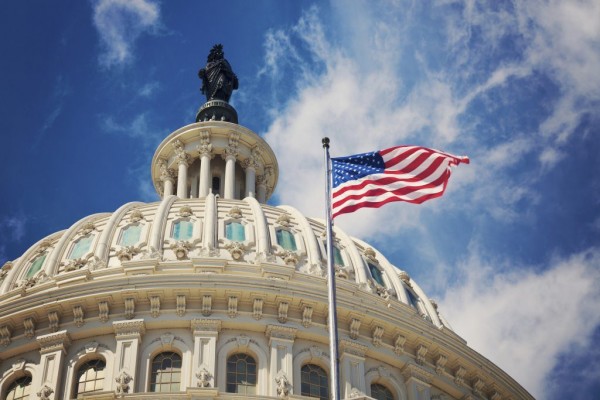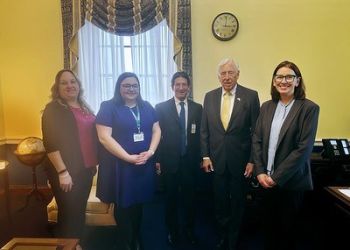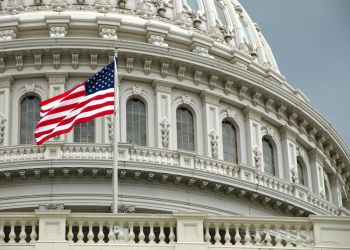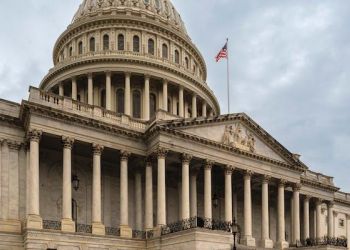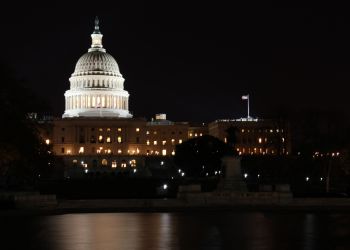On Wednesday, September 29, the Select Subcommittee on the Coronavirus Crisis, chaired by Representative James Clyburn (D-SC), held a hearing, entitled “Upgrading Public Health Infrastructure: The Need to Protect, Rebuild, And Strengthen State and Local Public Health Departments.” NACCHO members Dr. Jennifer Bacani McKenney, Health Officer of the Wilson County Health Department (Kansas); Dr. Mysheika Roberts, Health Commissioner of Columbus Public Health (Ohio) testified alongside Dr. Beth Resnick, Assistant Dean for Practice and Training, and Senior Scientist of Bloomberg School of Public Health Johns Hopkins University; and Dr. Joseph Kanter, State Health Officer and Medical Director of Louisiana Department of Health (and former New Orleans health officials).
This subcommittee hearing explored the current state of public health infrastructure in the US as we are over a year and a half, how Congress can take action to bolster public health infrastructure in the future, as well as barriers like the threats public health officials have faced throughout the COVID-19 pandemic. While the witnesses’ testimonies focused on the long-term infrastructure of public health, questioning largely centered on partisan debates around vaccine mandates and on what other topics members would like to hold hearings about in the future.
All four witnesses made mention of the need for bolstered, predictable, sustained funding and an improved public health workforce. Dr. McKenney noted the immense strain the pandemic has had on rural communities, and she shared that three of her department’s four employees had left the department over the course of the pandemic; Kansas has seen one of the highest rates of public health turnover in the nation, she shared. She mentioned the need for a national pipeline program to support the training and retention of public health professionals, and relatedly, the need for sustained funding, such as the Public Health Loan Repayment Act (H.R. 3297) and the Public Health Infrastructure Saves Lives Act (S. 674).
Despite the situation being such that Dr. McKenney had to call 40 hospitals in the region to find a bed for a COVID patient, she noted that some individuals in the community continue to not comply with public health activities due to distrust of the government, science, and public health. For example, the school board voted against masking children despite her recommendation (and she sits on the school board as well). Her safety has also been at risk in this community where she grew up: after a public meeting around mask mandates, a sheriff’s deputy asked to escort Dr. McKenney to her car noting that they were concerned for her safety.
Dr. Roberts shared a similar story about the public health workforce; she and her colleagues have worked tirelessly over the last 20 months, and stated her staff is burnt out, overworked, and underpaid; with some leaving the field entirely. She noted, public health officials have been threatened and politically scapegoated, not to mention the advent of laws that are restricting public health authority; for example, she shared that Ohio had passed a law that undermines infectious disease containment. Dr. Roberts emphasized that public health is essential to a thriving community, and how public health has responded to COVID-19 is how public health has responded to infectious disease for the past century. According to Dr. Roberts, public health must be allowed to do what it does best, protecting the community’s health using every tool at its disposal. Like Dr. McKenney, Dr. Roberts noted the need for sustained, predictable public health funding and a need to do more to recruit and retain a skilled workforce, such as a workforce loan repayment program.
Drs. Kanter and Resnick echoed the sentiments of Drs. McKenney and Roberts, underscoring the need for sustained investment in public health infrastructure, particularly in relation to the public health workforce. Per Dr. Kanter, the public health workforce is in danger of crumbling, and there is a need to be able to provide competitive salaries, professional advancement, and the ability to surge resources when needed.
Dr. Resnick’s testimony underscored the need for a strengthened workforce as 1 in 5 Americans has lost a public health leader during the pandemic, she shared. To create a robust public health system, Dr. Resnick highlighted the need to stop harassment and attacks against public health workers. She also recommended that that the CDC establish a national reporting system for such incidents and that the federal government implement legal strategy and incentives to protect the statutory power of public health from rollbacks at the state level (more on that in NACCHO and the National Network for Public Health Law’s report here). She closed her testimony with three additional recommendations: 1) guarantee multi-year funding for state and local public health infrastructure; 2) sustain federal investment in the workforce; and 3.) modernize the public health data system.
To view the full hearing please click here.
